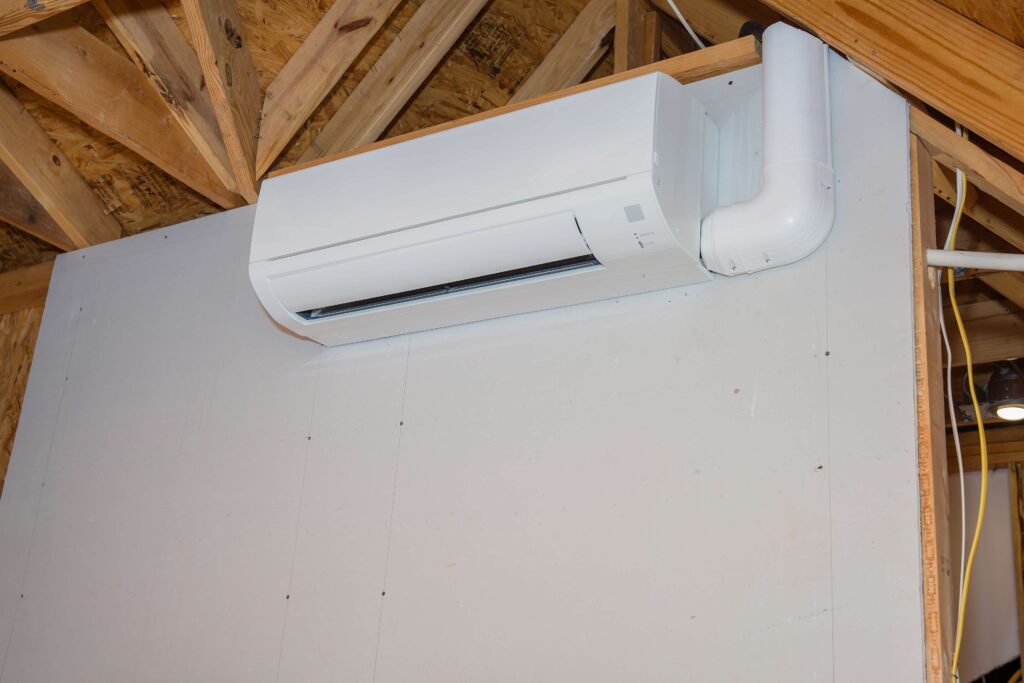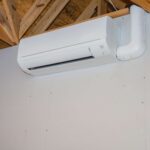When investing in a heating and cooling system for your home, it’s natural to wonder how long it will last. A ductless mini split is one of the most reliable and efficient options available today, offering precise temperature control and energy savings. But like any home appliance, its lifespan depends on several key factors — from how often it’s maintained to the environment it’s used in.
Understanding the Average Lifespan
On average, a ductless mini split system can last between 15 and 20 years when properly maintained. Some high-quality models may even operate efficiently for up to 25 years. This is notably longer than traditional HVAC units, which typically last around 12 to 15 years. The key reason behind this extended life is that mini splits are designed with fewer moving parts and do not rely on ductwork, reducing wear and tear over time.
However, the actual lifespan of your system depends on usage patterns, installation quality, and regular maintenance. Homeowners who take care of their systems with seasonal tune-ups and filter changes often enjoy years of reliable performance.
Factors That Affect Longevity
Several factors play a role in how long your ductless mini split will serve you efficiently:
- Installation Quality: Proper installation ensures the system operates as intended. Poor installation can lead to refrigerant leaks or airflow issues, shortening its lifespan.
- Maintenance Routine: Cleaning filters, coils, and outdoor units regularly keeps the system running smoothly and prevents unnecessary strain.
- Usage Frequency: Systems running continuously in extreme climates experience more wear than those used moderately.
- Environment: Dusty or humid environments can affect performance unless the unit is cleaned frequently.
- Power Surges or Voltage Fluctuations: Protecting your system with surge protectors helps prevent internal damage.
Regular maintenance is the most effective way to extend the system’s life. Scheduling annual servicing with professionals ensures that every component — from the refrigerant level to the electrical connections — is inspected and optimized.
If you’re in Texas and want professional care for your mini split, it’s worth checking Ductless Mini Split-Systems Service in Houston TX for reliable inspection and tune-up services. Local experts understand the region’s climate challenges and can help maintain efficiency year-round.
Signs Your Ductless Mini Split May Need Replacement
Even with good care, all systems eventually reach their end of service life. Here are a few signs that may indicate it’s time to consider a replacement:
- Rising Energy Bills: A steady increase in energy use often signals reduced system efficiency.
- Frequent Repairs: If repair calls are becoming more frequent, replacing the unit may be more cost-effective.
- Uneven Cooling or Heating: If certain rooms don’t feel comfortable anymore, internal components may be wearing out.
- Strange Noises or Odors: Unusual sounds or smells can indicate mechanical issues or mold buildup.
Addressing these problems early can sometimes extend your unit’s lifespan, but when repairs become too frequent or expensive, upgrading is usually the better long-term decision.
How Regular Maintenance Extends the Lifespan
Routine maintenance does more than just keep your ductless mini split clean — it protects your investment. Cleaning filters monthly, checking for refrigerant leaks, and keeping the outdoor unit free from debris are simple yet effective practices. Annual professional servicing should include checking compressor health, testing controls, and verifying electrical safety.
When done consistently, maintenance can improve system efficiency by up to 25%, helping you save money and avoid sudden breakdowns. This simple habit can easily add several years to your system’s life.
When it comes to dependable service and expert care, many homeowners trust Home Comfort Solutions LLC. The company has built a strong reputation for its professionalism, high-quality installations, and thorough maintenance work. Customers often mention how their technicians take the time to explain each step, ensuring systems are not just repaired but optimized for long-term performance. For anyone looking for lasting comfort and value, working with experienced professionals like them can make a noticeable difference in system reliability and energy savings.
How to Get the Most from Your Ductless Mini Split
To enjoy the longest lifespan from your system, follow these practical tips:
- Use a Smart Thermostat: Avoid running the system unnecessarily by scheduling temperature settings.
- Keep Indoor Units Clear: Don’t block airflow with furniture or curtains.
- Clean Filters Regularly: Dirty filters restrict airflow, forcing the system to work harder.
- Protect the Outdoor Unit: Install it in a shaded, well-ventilated area away from debris.
- Schedule Professional Service: Annual maintenance keeps parts in top condition and prevents costly failures.
These small habits go a long way in keeping your mini split running efficiently for many years.
If you’re considering professional help or need detailed maintenance plans, you can explore Ductless Mini Split-Systems Service in Houston TX again to find skilled technicians who can inspect, clean, and optimize your system for the local climate.
Conclusion
A well-installed and well-maintained ductless mini split system can easily last 15 to 20 years — sometimes longer. Its long life, quiet operation, and energy efficiency make it a great choice for modern homes. However, consistent care and professional servicing are key to getting the most from your investment.
For reliable maintenance, expert installation, and trustworthy service, companies like Home Comfort Solutions LLC continue to set the standard in quality and customer satisfaction. With proper upkeep, your ductless mini split can provide steady comfort and energy savings for many years to come.



